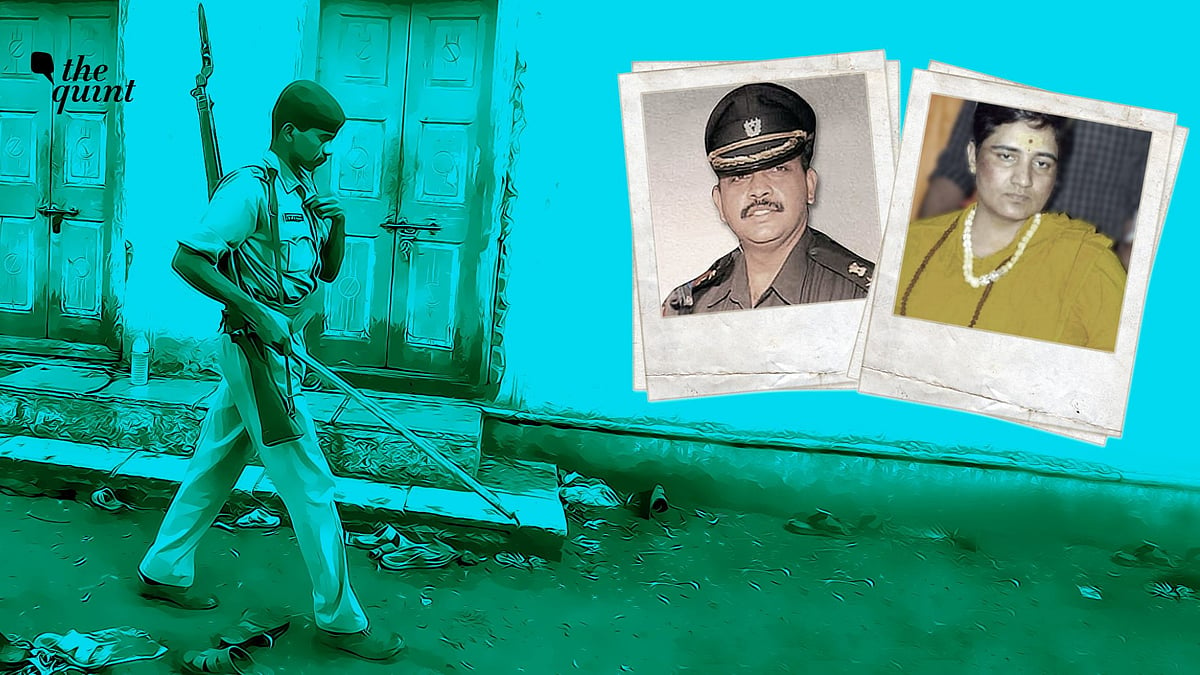
Who Bombed Malegaon? The Case Against Pragya Thakur, The Twists & The Verdict
A special NIA court on 31 July acquitted all seven accused in the 2008 Malegaon blasts case citing lack of evidence.

advertisement
A special NIA court on Thursday, 31 July, acquitted all seven accused in the 2008 Malegaon blast case, including former BJP MP Pragya Singh Thakur and Lt Col Prasad Shrikant Purohit.
An investigation that was launched by the Maharashtra Anti-Terrorism Squad (ATS) seventeen years ago in 2008, following a bomb planted on a bike near a mosque that killed six people and injured 100 others, reached its conclusion on Thursday with no convictions.
Here are the key developments in the case over the years, and the highlights of the verdict by the special NIA court.
The Case
In the chargesheet filed in 2009, the ATS accused Thakur and Purohit — both founders of a right-wing group called Abhinav Bharat — of hatching a conspiracy to ‘terrorise Muslims’.
The ATS had also invoked the stringent Maharashtra Control of Organised Crime Act (MCOCA) against all the accused.
After taking over the case from the ATS in 2011, the NIA filed a supplementary chargesheet in May 2016 and dropped charges against Pragya Thakur, citing insufficient evidence.
It also recommended dropping the MCOCA charges against some of the accused.
Between 2011 and 2025, Thakur was in the headlines for seeking several exemptions from physically appearing for the hearings, citing health reasons.
In December 2017, the NIA court ruled that, despite the NIA not opposing her discharge plea, sufficient incriminating material from the earlier ATS investigation meant that charges — including under the UAPA — would continue. Thus, she was ordered to stand trial.
The Verdict
‘Benefit of Doubt’
The court, in its order, said that it would have to extend the benefit of the doubt to all accused since the prosecution proved the occurrence of the incident itself beyond reasonable doubt, but failed to conclusively prove the involvement of the accused.
“Upon comprehensive evaluation, the prosecution has failed to bring any cogent evidence, and the evidence is riddled with inconsistencies,” Special Judge A.K. Lahoti said in the verdict, as quoted by Bar & Bench.
‘Compromised Evidence’
The court pointed to the police’s failure to secure the spot following the attack, leading to defects in the prosecution's evidence.
Who planted the bike?
The court observed that the prosecution failed to prove that the bike on which the bomb was allegedly planted belonged to Sadhvi Pragya.
Who sourced the RDX?
The court found that there was no evidence to prove that Lt Col Purohit sourced RDX from Kashmir or that he assembled the bomb.
Who funded the attack?
While the court acknowledged financial transactions between Lt Col Purohit and another accused, it said the prosecution failed to prove that the money was used for terror activities.
The court also said that there was no evidence of 'conspiracy' by the seven accused to plan the attack.
(With inputs from Bar&Bennch).
- Access to all paywalled content on site
- Ad-free experience across The Quint
- Early previews of our Special Projects
Published: undefined